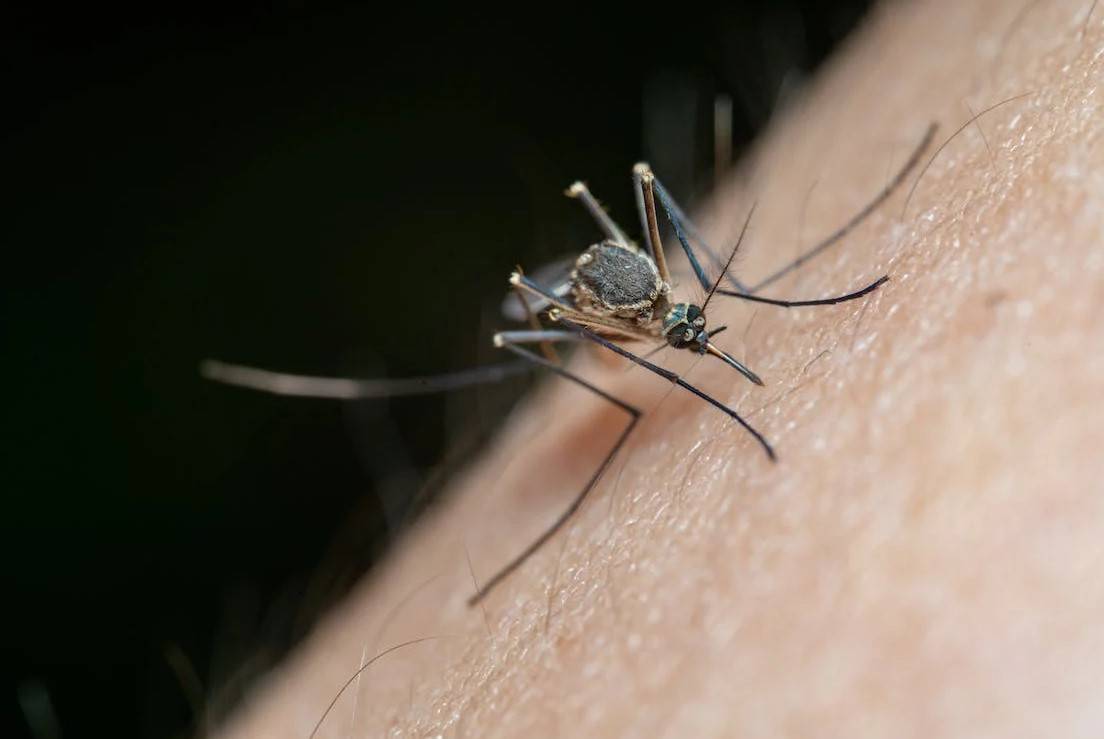As you head outside to enjoy the warm weather, one buzzing mosquito can quickly ruin the fun. Mosquito bites are more than just an itchy nuisance, as they can spread dangerous diseases too.
That’s why, in this article, we will explore the most common mosquitoes that bite humans, how to tell if a bite is from a mosquito or other insect, symptoms of mosquito bites to watch for, home treatment remedies for relief, when you should see a doctor, diseases caused by mosquitoes, and effective preventive measures you can take.
KEY TAKEAWAYS
- Aedes, Culex, and Anopheles mosquitoes most often bite humans and can spread diseases.
- Mosquito bites cause itchy, red bumps, sometimes in clusters. Watch for signs of allergic reaction.
- Treat mild bites with anti-itch creams, cold compresses, and oral antihistamines. See a doctor for severe reactions.
- Prevent bites by using repellent, wearing protective clothing, eliminating breeding sites, and limiting time outside at dawn or dusk.
Common Types of Mosquitos that Bite Humans
There are certain mosquitoes that frequently bite humans. Aedes mosquitoes, including Aedes aegypti and Aedes albopictus species, are predominant biters in tropical and subtropical areas.

Their painful bites can spread dangerous diseases like yellow fever, dengue, Zika, and chikungunya. Culex mosquitoes have a worldwide range and can transmit West Nile virus and other encephalitis diseases through their bites, which tend to occur at dawn and dusk.
Anopheles mosquitoes inhabit tropical and subtropical regions as well. Only the females bite humans, feeding on blood to develop their eggs. Anopheles mosquitoes are the sole type that spread malaria.
Identifying Mosquito Bites
How can you determine if that irritatingly itchy bump comes from a mosquito versus another pest? Mosquito bites appear as puffy, round bumps that may look swollen and red. They often occur in clusters or lines of multiple bites close together.
The bites are very itchy and irritating, sometimes even painful. Unlike bed bug bites, mosquito bites do not have a central puncture point. More severe reactions can cause a hive or blister-like welt to develop, surrounded by pink or flushed skin as the bite heals.
Symptoms of Mosquito Bites
Mosquito bites lead to more than just skin irritation and itchiness. Other common mosquito bite symptoms include redness, swelling, and warmth at the actual bite site as the immune system reacts.
Hives or small, itchy pink bumps can appear away from the initial bite due to an allergic response. If bitten multiple times, bruising or bleeding under the skin is possible, indicating the mosquito was likely blood-feeding.
Swollen glands or lymph nodes near the bite may develop too. Headache, fever, and body aches can result if an infectious mosquito bites you and transmits the disease.
Treatments
For mild mosquito bites, there are several effective at-home treatment options to relieve symptoms:
- Topical anti-itch creams like calamine lotion or hydrocortisone can provide relief from itching and swelling. Cold compresses or ice packs can also soothe irritated skin.
- Oral antihistamines like Benadryl or Zyrtec block the histamine reaction that causes itching. Over-the-counter pain medication can help reduce pain and swelling.
- Home remedies like baking soda or aloe vera gel create a protective barrier over the bite and have natural anti-inflammatory effects. Avoid excessive scratching to prevent infections.
See a doctor promptly if you experience severe swelling, blistering, bruising or signs of infection at the bite site like increasing redness, pus, or fever. Widespread hives or trouble breathing may indicate a serious allergic reaction requiring emergency care.
Preventing Mosquito Bites
Taking preventive measures is the best way to avoid frustrating and potentially dangerous mosquito bites. For example, using EPA-registered insect repellents containing DEET, picaridin or oil of lemon eucalyptus can be an effective mosquito bite treatment when applied correctly.
Wearing loose, long-sleeved shirts and pants when spending time outdoors, is also another good way to avoid mosquito bites, as exposed skin is more vulnerable to bites. Mosquito netting also offers an additional physical barrier against bites.
In addition, professionals know how to safely and effectively apply pesticides to mosquito hot spots that you may not be able to reach yourself. Technicians are also knowledgeable about the active ingredients, formulations, and coverage needed for optimal mosquito control depending on factors like your property size and layout.
Relying solely on insect repellents and long clothing leaves you vulnerable to sneaky bites. Partnering with a reputable mosquito treatment company provides comprehensive protection you can’t get through DIY measures alone. Schedule an inspection and discuss an integrated mosquito management plan for your property. With professional treatments and some smart preventive steps, you can enjoy your yard safely without the nuisance of mosquito bites.
In a Nutshell…
With some practical measures, you can prevent mosquito bites and enjoy the outdoors safely. See a healthcare provider if you have any concerning reactions or symptoms after being bitten. Knowing how to identify, manage, and prevent mosquito bites is an important step in protecting your health.



